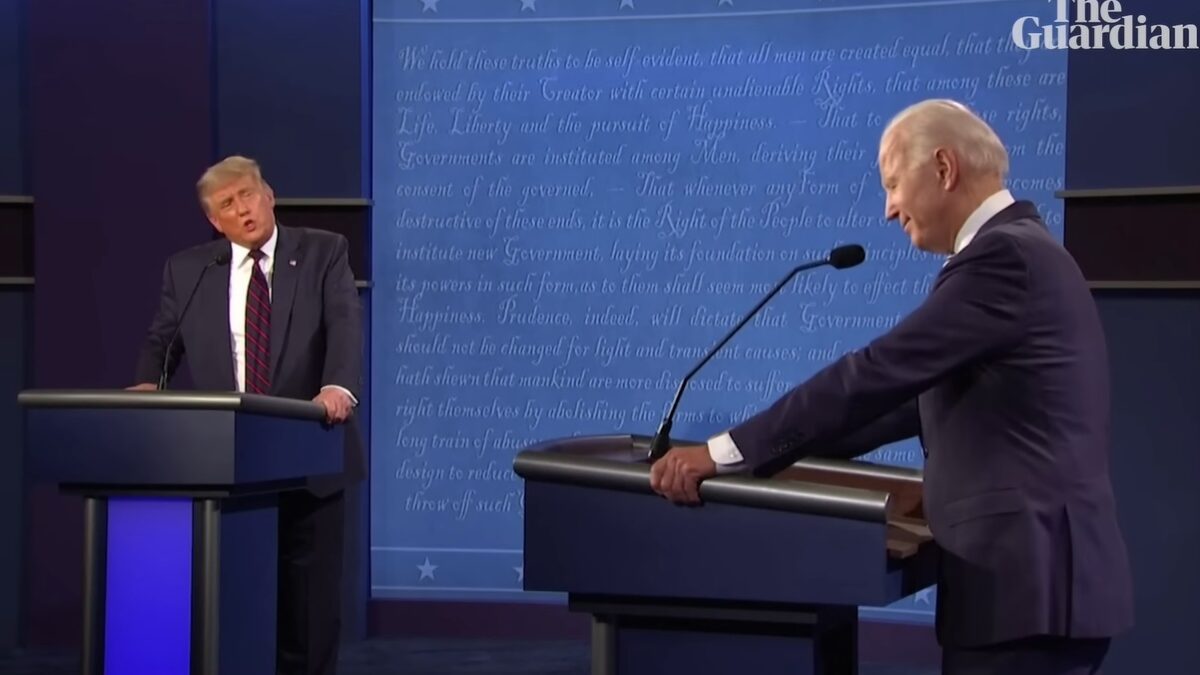U.S. Sen. Joni Ernst (R-Iowa) introduced legislation last week that seeks to cut waste at the Pentagon by streamlining department storage facilities. The bill, “Defense Storage and Supply Efficiency Improvement Act,” would allow the Department of Defense to shut down and consolidate its warehouses and storage centers to cut costs.
The Government Accountability Office estimates such measures could save the Defense Department more than $500 million by using its distribution centers more efficiently.
The legislation is Ernst’s latest effort to weed out wasteful government spending. She introduced a slew of proposals earlier this year that have yet to gain traction among many members in the Senate.
“We have to be those fiscal watchdogs,” Ernst said in a meeting with reporters in her office.
Ernst’s recent legislation includes the “End-of-Year Fiscal Responsibility Act,” which limits federal agencies in the last two months of the fiscal year from spending more than the average spent per month in the ten months prior. Federal agencies are currently incentivized to spend the remainder of their allocated funds before the fiscal year is over to avoid facing budget cuts, often referred to as “use-it-or-lose-it” spending.
“This legislation would revolutionize federal procurement,” said Adam Andrzejewski, the founder and CEO of the government transparency non-profit Open the Books. Andrzejewski said by making it harder for agencies to go on spending sprees at the end of the year, it would allow government watchdogs to catch wasteful spending much sooner.
A March report from Open the Books reveals that some last-minute government spending sprees included $4.6 million on lobster and crab, $2.1 million on games, toys, and wheeled goods, and more than $300,000 on alcohol. The report also found nearly $25,000 spent on candy and almost $12,000 on a commercial Foosball table.
Ernst has also proposed the “Billion Dollar Boondoggle Act,” which requires the executive branch to provide an annual report listing every government-funded project that is either $1 billion over budget or behind schedule by at least five years, to prompt congressional oversight.
As the nation grapples with more than $22.5 trillion debt — that’s more than $68,000 per citizen and more than $183,000 per taxpayer currently — and rising deficits, Ernst has worked to brand herself as a fiscally conservative senator fighting to make Washington bureaucrats “squeal” from budget cuts.
Yet Ernst still voted to pass the latest budget compromise in August that increased spending by an additional $320 billion and lifted the federal debt ceiling for two more years.
“That was really a tough pill for me to swallow,” Ernst said of her vote on the budget deal. “What we were faced with was of course a split Congress, and Speaker Pelosi had pretty much laid down the marker and said it’s either this or you get nothing at all, and I certainly didn’t want to shut down the government.”
Ernst stressed that discretionary spending has not risen in recent years nearly as much as mandatory spending and has urged Congress to address the problems with entitlements. At an Iowa town hall earlier this month, Ernst said lawmakers should come together to find changes to Social Security “behind closed doors,” to avoid special interest pressure during the process.
“As various parties and members of Congress, we need to sit down behind closed doors so we’re not being scrutinized by this group or the other and just have an open and honest conversation about what are some of the ideas that we have for maintaining Social Security in the future,” Ernst told her constituents.
Democrats immediately jumped on the comments and criticized the Iowa senator, who is up for re-election next year, for what they say is an attempt to avoid accountability. Partisan attacks like these, when analysts across the political spectrum agree Social Security mathematically cannot pay all the benefits it has currently promised, are a major obstacle to solving the problem. If Social Security and Medicare’s spending are not contained soon, they are set to eventually create a worldwide financial crisis by tanking U.S. government budgets and credit, and therefore the economy.
Joni Ernst is still pushing to gut Iowans’ hard-earned Social Security benefits. And she’s hoping to do it “behind closed doors.”
Voters are tired of her games, and in 2020, they’ll hold her accountable.https://t.co/ABDChDWHBG
— Senate Democrats (@dscc) September 5, 2019









